Do you want to travel in a more responsible and sustainable way? It is easier than you may think and in this guide we outline 6 steps to make travel a deeper and meaningful experience whilst also helping to protect our beautiful planet.
Being a responsible traveller is easier than you may think. Choosing sustainable ways to travel means less stress, it can save you money, but can also give you a richer more cultural experience in the country you choose to visit, and isn’t that why we travel
If one thing the year 2020 showed us, is how our precious planet is able to recover when there is less movement. The air is less polluted from aircraft and industry, popular places have no crowds, and sounds of nature can be heard more instead of the constant noise of traffic.
The travel industry is worth billions, and every year more money is spent on travel, but it does not always have a positive impact on the country we are visiting, or on the environment.
Whether you are taking a weekend break, staying local, or travelling to a destination further afield, these 6 tips will help you do it in a more sustainable way.
In this article we share how you can travel more responsibly in the future.
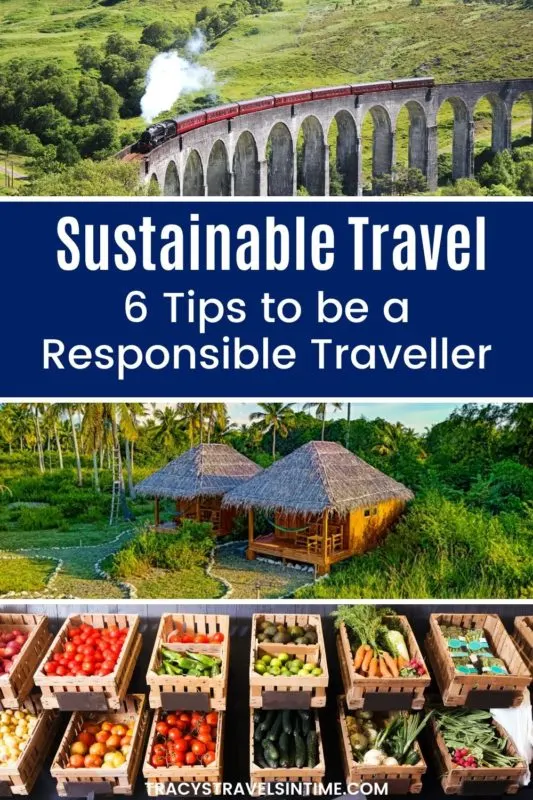
6 steps to sustainable travel
Choose a less visited destination
Before the pandemic, overtourism was a huge problem in countries like Croatia, Venice and Barcelona to name a few. Too many people were crammed into small cobbled streets, popular attractions were surrounded by crowds, and thousands of tourists surrounding locals every day meant they were no longer enjoying the place they called home.
By choosing a less visited destination, you will have more space to yourself, there are less crowds, prices are cheaper, you will have a friendly more valuable interaction with locals, and it will help boost the economy. You can still visit your desired country, but instead of Barcelona head further north, or in Croatia choose Rovinj instead of Dubrovnik.
A few examples of emerging worldwide destinations are Georgia, Montenegro, Macedonia, Liechtenstein, Vanuatu, Kyrgyzstan, The Cook Islands, Ecuador, Dominica, St Kitts and St Nevis, Tasmania, Laos, Myanmar, but of course there are many more places depending on whether you want city, beach, nature, history, hiking or mountains.
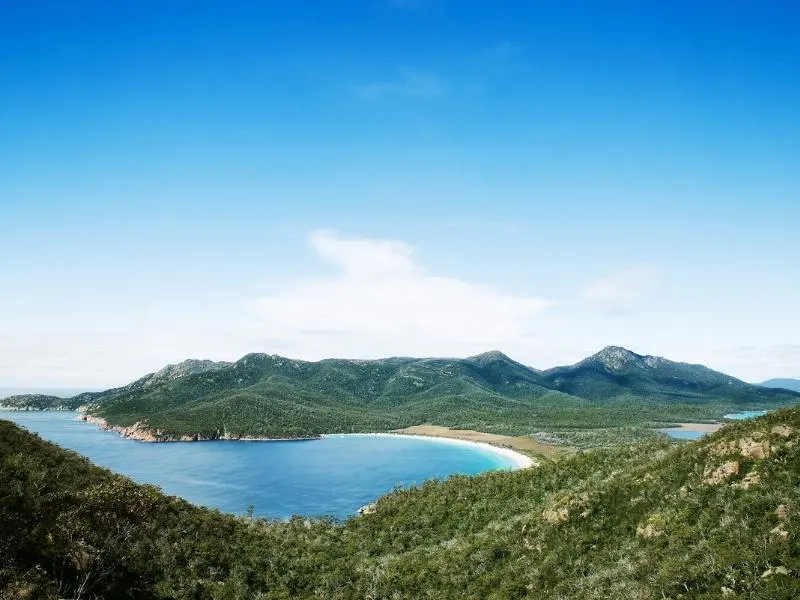
Slow Travel
Slow travel is better for the environment, leaves less of a carbon footprint and uses less fossil fuels. It’s also less stressful because you aren’t trying to rush around all the time, and part of travelling is to leave your stresses behind right?
By choosing slow travel, you will be immersed into your surroundings, and can appreciate everything more. Don’t try to cram in as much as possible on one trip, instead of staying in a place for one night, book two or maybe three nights. By doing this, less water and electricity are used for cleaning the room, and you get to find out more about the area you are staying.
Use public transport and mix with local people. Instead of travelling by taxi, take a bus, tuk-tuk if you are in Thailand or jeepney if you are in the Philippines. Local transport is a fantastic way of immersing yourself into the local culture, and you can meet some interesting people along the way.
Taking a train instead of flying is one of the best ways of slow travel. Train travel means you can view more of the area through which you are travelling, and there is a certain charm about watching rolling countryside, mountains and rivers passing you by. Why not book a sleeper train and save the costs of a night’s accommodation while travelling sustainably?
Trains are more comfortable, there is more space, and there is usually a buffet cart to buy food and refreshments when you need it.
Oh and by the way, slow travel is also cheaper!
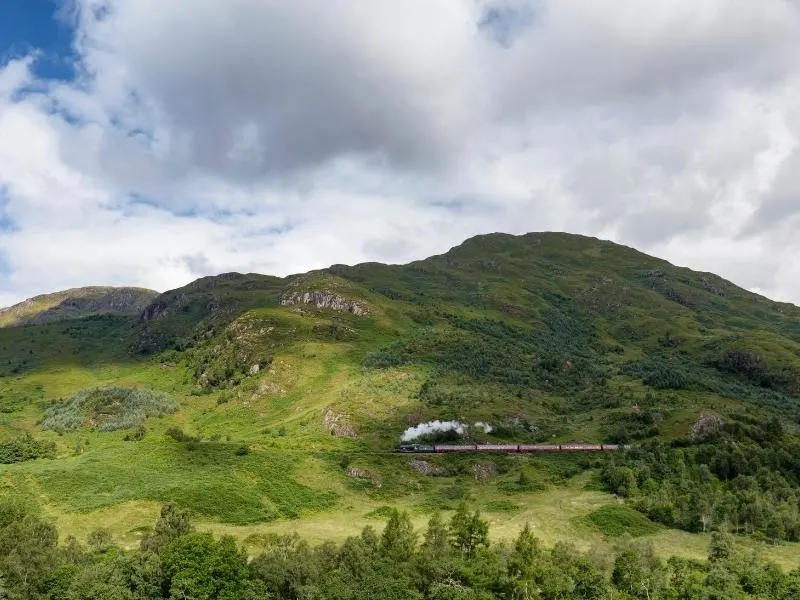
Stay in eco friendly accommodation
When choosing your hotel, choose eco-friendly accommodation which look after the planet.
Eco friendly hotels are built in harmony with nature, and limit their impact on their surroundings. Quaint cottages can be made from bamboo, and rooms may have cross-ventilation or fans so that air conditioning isn’t needed.
They may have sustainable options such as rainwater collection, solar power, or advocate zero waste and plastic free policies. Practices will be in place to help guests travel more responsibly, for example free water refill stations or use of a reusable bag, and they may have literature or posters to help educate how you can be a better traveller.
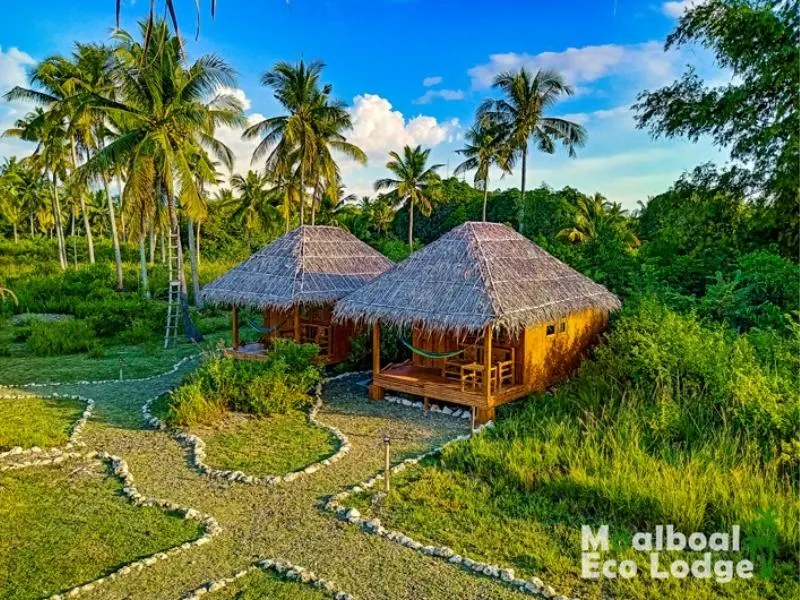
Reduce your single use plastic
This subject has been discussed for a few years, which means there are many plastic free travel options available to help you reduce your single use consumption.
If you already have plastic in your life, use it use it use it until it can be used no more, and only then should you invest in plastic free items. Canvas tote bags, refillable water bottles, bamboo or steel straw sets and reusable cutlery should all be items you carry with you every day when you travel.
They are not only fantastic for travel, but for hiking, camping, or going on day trips. When you change your mindset, you will discover how often you need these items.
Shampoo bars and bamboo toothbrushes may not be single use, but switching your bathroom items to non-plastic when you need to replace them is another important step towards using less plastic.
Another bonus about using plastic free travel items is they weigh less, take up less luggage space, and don’t count towards your liquid allowance if you’re flying.
Don’t forget your washable face mask! If you’re not a front liner, you should be wearing a reusable, washable face mask which will not only help reduce your single use plastic whilst travelling during coronavirus, but will save you money in the long run.
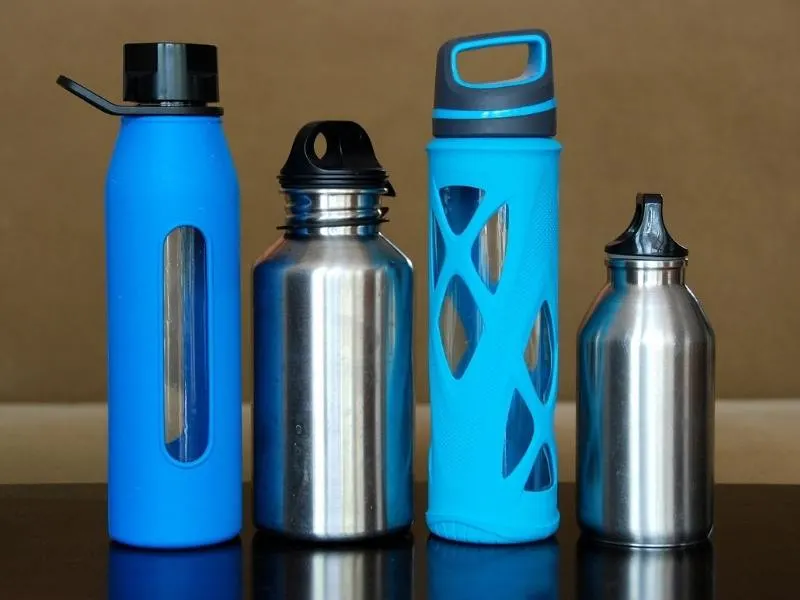
Don’t participate in animal tourism
You may love animals, but sadly so much of animal tourism means the animals you love are suffering. Dolphin shows, elephant rides, and anything which involves feeding wildlife to keep it in one place for your enjoyment is not ethical or sustainable.
Choose to see wildlife in their natural habitat, and not only will you be helping the animals, you will have a far more enjoyable experience. If you like sea life, instead of going to an aquarium, look into freediving or scuba diving. Maybe elephants are your favourite animal, so choose to visit one of the many amazing countries in Africa for a bucket list safari adventure.
There are some places in the world where you can easily view animals in their natural habitat, for example kangaroos on the beach in Cape Hillsborough, Queensland, Australia or bison in Yellowstone National Park in USA.
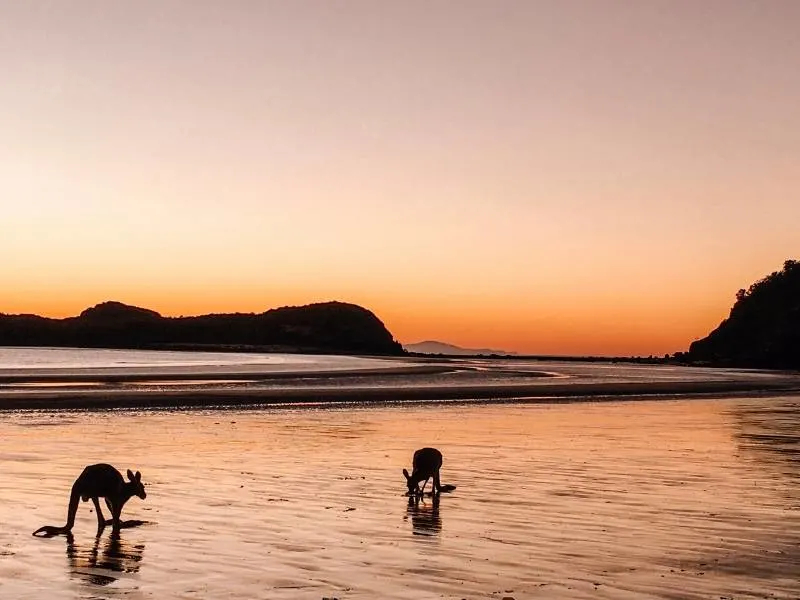
Shop and eat locally
Instead of stopping at convenience stores like 7/11 or a large supermarket, find a local shop or market to purchase snacks and produce. Purchasing souvenirs from artisans, or fresh fruit from local vendors means you are supporting the seller and their family directly, but also helping to preserve traditions.
Choosing small restaurants or street food is another way of helping locals, and will provide a better cultural experience for you by introducing you to new dishes.
Shopping small and local helps the country’s economy, but also has less impact on the environment. Food items are grown and transported nearby which has less of a carbon footprint, items are much fresher, and veggies won’t be wrapped in plastic which you often find with supermarket produce.
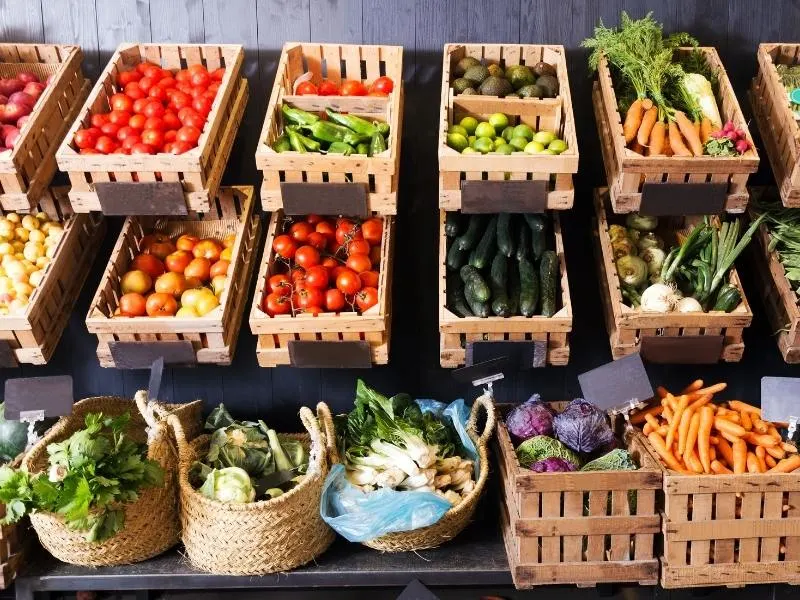
Choose to travel sustainably and responsibly
I hope this article has helped you realise that travelling responsibly and sustainably will give you a deeper and richer cultural experience.
We have all learnt how valuable travel is to us, but now we have an opportunity of doing it in a way that is better for our planet which in the long run, is better for us.
